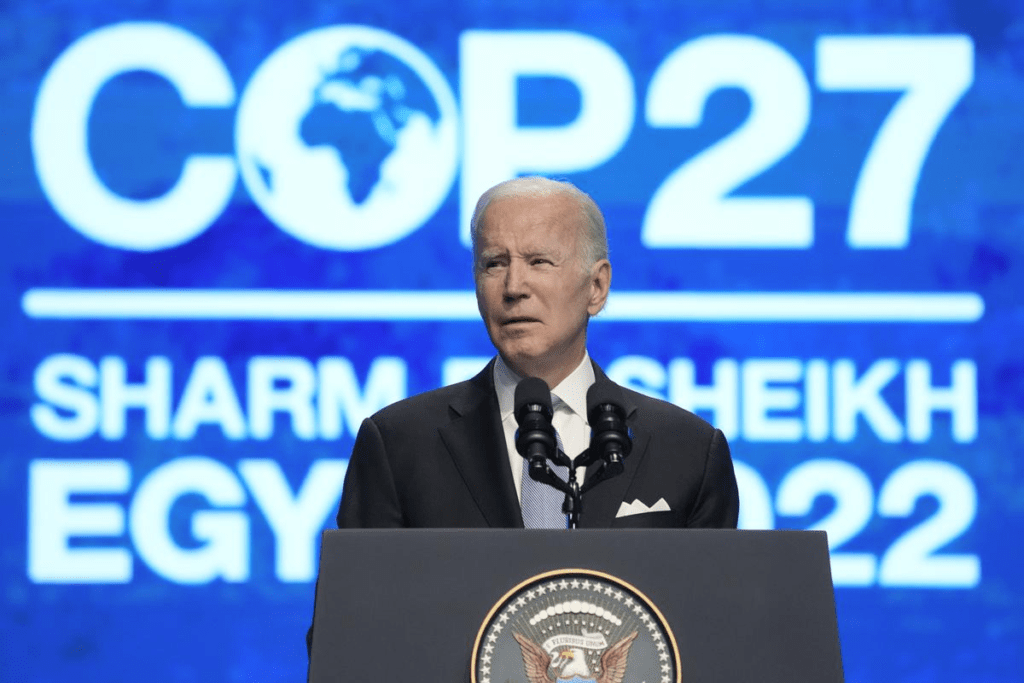We are about to share a glimpse of what the summit might include, from pledges to do better to major problems likely to be raised at crucial negotiations.
This international gathering is often associated with climate change, but what exactly is COP27 and how can it contribute to the world’s most pressing environmental issues?
What is Cop 27?
The two-week summit has happened every year since 1995, where world leaders, legislators, academics, and a wide range of other individuals participate to discuss the global climate challenge.
The UNFCCC, an international environmental convention that addresses climate change, was ratified 30 years ago, and the annual conferences bring those signatories together.
Every year, representatives from all parties gather for the Conference of the Parties, or COP, to discuss how to combat climate change. The 26th COP, which was held in Glasgow last year, will be held in Egypt next month.
Why is COP important? Its significance?
Global warming is a result of emissions that are mostly caused by humans and come from the burning of fossil fuels like coal, oil, and gas. The UN-affiliated Intergovernmental Panel on Climate Change estimates that global temperatures have risen by 1.1C and are on pace to climb by 1.5C. (IPCC).
The IPCC projects that if temperatures rise by 1.7 to 1.8C over levels of the 1850s, half of humanity may be subjected to heat and humidity that endanger their lives. In order to avoid this, 194 nations committed to “pursue efforts” to keep global temperature increases to 1.5C by signing the Paris Agreement in 2015.
When and Where is COP 27 Happening?
COP27 will take place, over the course of two weeks, from November 6 to November 18. On November 7 and 8, there will be a World Leaders Summit to begin the two weeks of negotiations. Following that, government representatives will address some of the most important climate-related topics, such as funding, emission reductions, adaptation, and agriculture.
Big issues including gender, water, and biodiversity will be in the focus during the second week.
This year’s COP will be held at Sharm El-Sheikh, a resort town on the Red Sea, in Egypt. Africa will be hosting the COP for the fifth time. The governments of the area are hoping that it would highlight the serious effects of climate change on the continent. According to the IPCC, Africa is one of the world’s most vulnerable continents.
Aims & Objectives

Image Source: The Hindu
The COP27 conference intends to encourage the use of climate technology in poor nations. COP27 made substantial progress in the mitigation effort. In Sharm el-Sheikh, a mitigation work programme was started with the urgent goal of increasing mitigation ambition and application.
Key Takeaways:
Fuel from natural resources is unlikely to die down soon
The number of oil and gas industry campaigners has increased since the last COP, demonstrating the growing influence of these businesses at the climate negotiations. Fossil fuel lobbyists had an impact on the Sharm El-Sheikh Implementation Plan which was adopted by nations at the COP. The term “low-emissions” energy was added to the list of future energy sources alongside renewable energy.
Green transition, not greenwashing
The UN has established rules for evaluating the integrity of business net zero programmes, and there is an increasing emphasis on the issue at the global level. The proposals state that the targets should encompass the short, medium, and long term and should result in an overall decrease in all emissions, including those from the supply chain. Progress should be documented in a way that facilitates comparison with peers, and comprehensive transition plans should show how capital spending will be linked with the targets.
The Farming & Agriculture system will now be Explored
Food and Farming have been ignored from official inclusion in UN talks, despite the agriculture sector’ one third contribution of greenhouse gas emissions. To help farmers adapt, there have been more requests in recent years, especially since the effects of harsh weather have hurt the availability of food.
The UN Food and Agriculture Organization will be in charge of the Food and Agriculture for Sustainable Transformation (FAST) programme, which was created by the COP27 chair to increase the number and quality of climate financing contributions focused on changing agriculture by 2030.
COP 27 is crucial, but there is still a long way to go.










